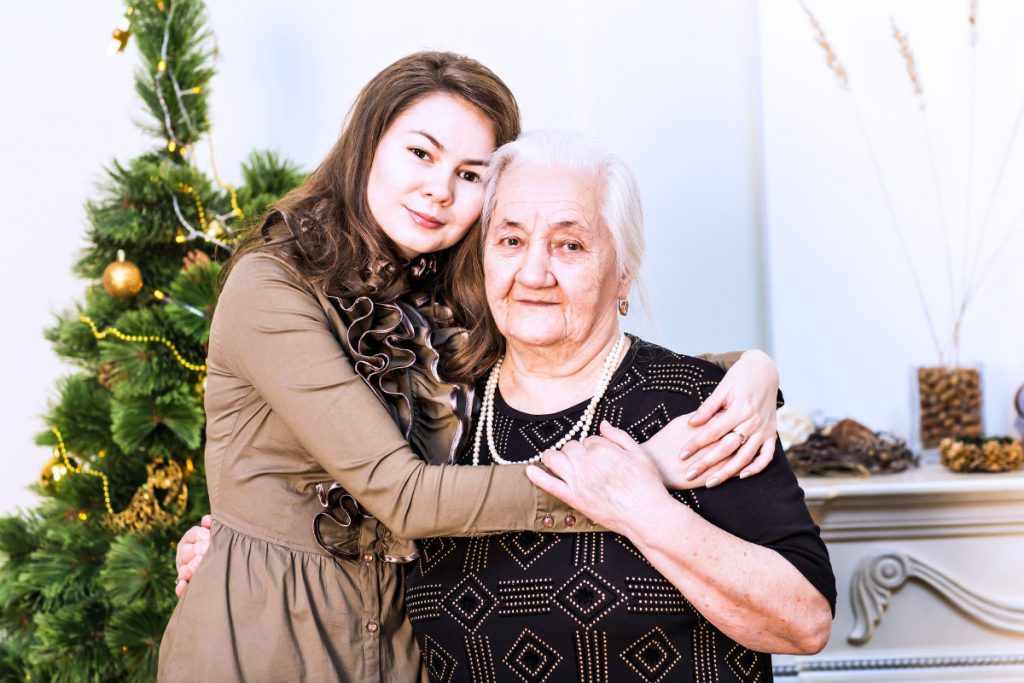Tis the Season... Alzheimer’s, Dementia, Depression
Holidays are stressful enough and now add to that caring for an elderly parent or someone with dementia and you have a holiday recipe for depression. You want to enjoy the season, but you may be worried about an aging parent who is living alone or is no longer able to attend the traditional family gathering. Guilt creeps in and depression can be a result of the worry of caring for a senior parent who has dementia or Alzheimer’s Disease. This is supposed to be "the most wonderful time of the year" but it's completely normal for you to feel sad, confused, worried or frustrated by the upcoming holiday gatherings.
Holiday Family Gatherings – Reality Check
It may be at one of this year’s family gatherings that you notice a family member is less comfortable socializing and withdraws from the fun of the holiday event. As Alzheimer’s progresses, a person can feel uncomfortable and overwhelmed by crowds. They often feel anxious or on edge because they're confused about whom they're with, what's going on or where they are.
Pay special attention to see if there are changes in personality. Can they follow a conversation or are there changes in personality or behavior or memory? They may ask, “What time of the year is it?” “Why does the house look different?” “Why is there so much activity?” “Who are all these people?” Or they may announce, “I just want to be alone.”
Old Traditions May Be Replaced with New Traditions
Don't set yourself up for disappointment by dwelling on the past. Traditions may need to be altered to accommodate your needs and the needs of an aging parent. Past traditions and memories, like singing old holiday songs, watching classic Christmas movies, and looking though old family albums, may help a person with dementia to be a part of the season. New traditions can be started. Simple repetitive activities are safe and fun to do with a loved one with dementia. Don’t be afraid just because the loved one has been diagnosed with Alzheimer’s. Be yourself and draw the person into the conversation by discussing old memories.
Caregivers Need to Be Noticed Too
Is the family member who is the caregiver feeling overwhelmed or stressed? Take a moment to sit down with the caregiver and ask, “How are you doing” or “Tell me what you are feeling”. Offer to give the caregiver a break.
Depression is common during the holidays especially among older adults and caregivers. Sadness can be due to a sense of loss because of missing a loved one or because your loved one is not the same person as in previous holidays. Special traditions like decorating the tree or celebrating Hanukkah by lighting the menorah may not register with the parent or loved one with memory loss.

Stress, depression and the holidays:
Tips for coping from the Mayo Clinic
Tips to prevent holiday stress and depression
When stress is at its peak, it's hard to stop and regroup. Try to prevent stress and depression in the first place, especially if the holidays have taken an emotional toll on you in the past. Here are a few suggestions from the Mayo Clinic.
- Acknowledge your feelings.
- Reach out.
- Be realistic.
- Set aside differences.
- Stick to a budget.
- Plan ahead.
- Learn to say no.
- Don't abandon healthy habits.
- Take a breather.
- Seek professional help if you need it.

"When someone you know and love is diagnosed with one of these diseases, the 'new normal' can be difficult to understand, accept and deal with, especially around the holidays," says Rubinstein, author of Alzheimer's Disease and Other Dementias: The Caregiver's Complete Survival Guide. "The key to best managing your holiday experience is to educate yourself as to what you should expect and to regulate your expectations accordingly."
Family Communication is Important
A holiday gathering where all the family is together might be a good time to discuss the options if you find that a family member is experiencing the early stages of Alzheimer’s or has dementia. You might want to exchange group emails before a gathering. If you are the person’s caregiver, don’t be afraid to ask for help. Let others know what you can do and what is beyond your abilities. Think things through and make decisions based on the reality of the new normal.
Holiday Help
Give yourself the gift of respite care. If friends or family ask how to help, or what you want for the holidays, suggest a gift certificate for respite care if they are unable to relieve you for a few hours. Maybe they could help with house cleaning or pay for a service that can provide companion care or respite care. Be sure to make time for yourself! You may be responsible for your loved one every day so it is important to manage your expectations realistically. You need to say healthy too!
Backup Help is Available – You Are Not Alone
Health Force of Georgia is here to help get you through the holidays and beyond. Our home health care services include Companion Care, Personal Care, Alzheimer’s and Memory Care, Respite Care, Skilled Nursing and even Infusion Therapy. We can even help get your loved one to doctors’ appointments and shopping when you can’t. You may just need help for a few hours, days or for the long term. This holiday season, give yourself and your loved ones the help to adjust to the new normal of caring for a loved one with dementia.
Health Force of Georgia Offers Many Types of Assistance with Alzheimer's Patients
Call (770) 458-8500
to schedule help:
- Mental stimulation
- Physical activities and social engagement
- Bathing, dressing, grooming and toileting
- Light housework
- Transportation to medical appointments and other events
- Planning and preparing nutritious meals
- Grocery shopping
- Doing hobbies
- Monitoring and giving medications
- Keeping records on patient status, changes and all activities
- Maintaining a safe environment and consistent routine to lessen agitation or outbursts
- Adapting level of care as disease progresses
- Managing change in behavior

Put respite care on your wish list. If friends or family ask what you want for a gift, suggest a gift certificate or something that will help you take care of yourself as you care for your loved one.
Health Force of Georgia Service Area
Health Force of Georgia offers affordable Alzheimer's Disease and dementia care services in the Metro Atlanta area. We know that providing memory care for Alzheimer’s and dementia patients is stressful and challenging for caregivers. That’s why we’re here for you with flexible Alzheimer’s care assistance that removes the burden of care for a short time or an extended period depending on your situation.

Our service area includes metro Atlanta, GA and 18 surrounding counties.
